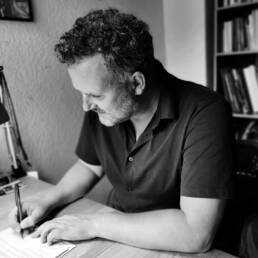
Prof. Dr. Thomas Stodulka
Lecturer
Thomas Stodulka is professor at the Department of Social and Cultural Anthropology at the University of Münster. His doctorate is in Social and Cultural Anthropology from Freie Universität Berlin, where he was also junior professor with a focus on Psychological Anthropology between 2016 and 2023. His work focusses on affect, emotion, alternative education, mental health, marginality and stigmatization mostly in South East Asia (Indonesia and East Timor).
His favorite teaching and research lies in ethnographic methods, psychological, media, and visual anthropology. Thomas´ first research project was based on long-term fieldwork with marginalized communities in Indonesia between 2001 and 2013, where he collaborated with and learned from street-related youth, local and expatriate NGO-networks, doctors, nurses, and artists. Within this research collaboration he co-founded an independent cinema-café called KINOKI.
His second longer-term anthropology project that followed (and is still ongoing) titled ‘The Researcher’s Affects’ focuses on the role of affect and emotions in ethnographic research. His current works expand on how permaculture can shape futures, livelihoods, personhoods and economies in both urban and rural contexts in Timor-Leste, Indonesia, and the wider Asia Pacific Region. Aside from writing, the project intends to engage in collaborative media and video practices with a network of filmmakers, artists, communities, and children.
Collaborative video and filmmaking draws on his graduate studies in visual anthropology and film and communication studies at the Georg-August Universität Göttingen, and expands on long-term collaboration with filmmakers and video artists in various projects (e.g. 2019 ‘How to Disrupt Yourself: Life in the Entrepreneurial Home’; 2017 ‘Decision for a Reasonable Distance’; 2017-2021 ‘Encounter’ media lab).
His teaching ties with all the research projects in highlighting collaborative pedagogies and supporting students in following their pathways in and beyond the academe. In more than a decade of teaching in the academe, he has learned that intersectional and interactive teaching substantially supports students’ intellectual and personal engagement with methods and theory.